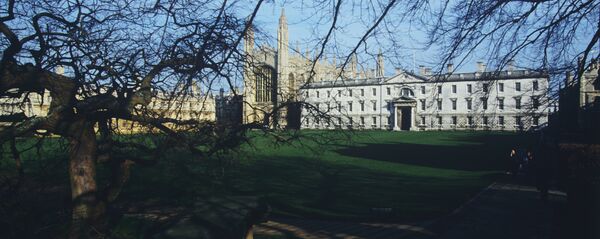Sputnik has discussed the issue with Dr Chris Rolph, Principal Lecturer at Nottingham Trent University.
Sputnik: Can you explain the current system we have in place for school aged exams in England?
Chris Rolph: Okay so in England students will study GCSE when they reach the age of 16, because of the accountability system that we have, most children will do at least 8 but probably not more than 10 GCSE.
The GCSE is a General Certificate in Secondary Education. So that provides a kind of benchmark for what children at the age of 16 should be able to achieve.
Sputnik: The Government has been trying to ‘improve’ the GCSE for the last 9 years, can you tell me what changes they made to the exam?
One of the things that the Conservative government did, I think it's a coalition government, did was take away some of those equivalencies. So they basically sharpened up the focus on GCSEs themselves and we lost quite a number of those equivalencies. Then they said they wanted to raise the academic standards in GCSE.
There's a kind of double edged sword here, so they were saying too many children are getting higher grades so they wanted to make the GCSE a bit harder and they look to the content but at the same time, schools are penalized if children don't get the high grade. So it's kind of in a situation where nobody wins really.
So the GCSE regraded, and we went from the 'A to G' system to the 'Nine down to One' numerical grade now and the content has changed as well. So the new GCSEs are supposed to be a little bit harder, much less emphasis on coursework. Most of them don't have any coursework in at all. It's all based on a term and exam.
Chris Rolph: I think you have to consider a couple of things one of them is in what sense are they pointless? If you're looking, I don't know, at a student who is applying for university then you're probably going to be interested in their A level grade, which they won't have got yet, so the only actual grade you've got to look at our the GCSE grade.
If you're a student and you might well say well, I'm studying all of these subjects y'know 10 or more subject until I'm 16 and then suddenly a narrow down to the three. For the student, they may well say "Well, I'd like some credit for all of that study I've done on all these other areas before I narrow down".
I think just saying that the proposal today is just scrap GCSEs, I think, that's only taking a part of his argument because he was also talking about broadening study up to the age of 18. So I think if you're going to mess about with GCSE, then yes, you need to look at what happens between 16 and 18.
And, you know, I think the Scottish system includes a broader range of study up to the age of 18, and maybe something like that might be better? But the important thing I think, is to actually have the debate.
Views and opinions expressed in this article are those of Chris Rolph and do not necessarily reflect those of Sputnik.


